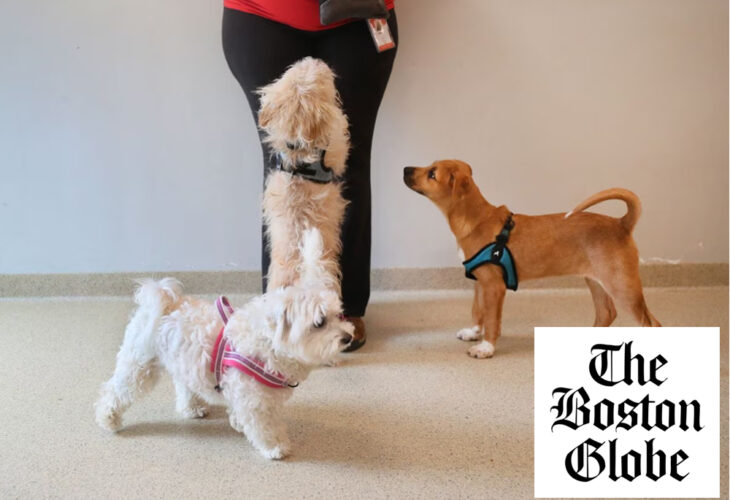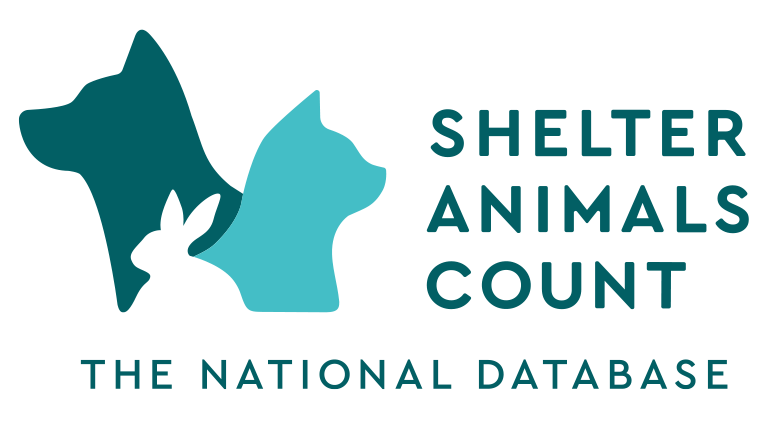Home for the Holidays: Adoption Trends for Dogs During the Holiday Season
December 9, 2024

Boston Globe
By: Alex Koller
Published: July 22, 2023
In his 30 years of animal welfare work, Michael Keiley had never seen the kind of spike in pet adoptions he witnessed during the pandemic.
But three years later, Keiley, director of adoption centers and programs at MSPCA-Angell, says interest in adopting has fallen sharply, making it harder for the shelter — which runs adoption centers in Boston, Methuen, Salem, and Cape Cod — to find homes for its droves of new animals. The culprit, shelter staffers say, is not return-to-office mandates or caregiver fatigue, but inflation and the brutal housing market.
“I don’t think I’ve seen shelters as desperate as they are right now,” Keiley said. “The need is tremendous.”
It’s been a familiar story across the country. Many pet owners, facing housing crises and high consumer prices, have been forced to give up their companions. Meanwhile, would-be owners are thinking twice before committing to a pet because of financial concerns.
The twofold issue has left shelters reeling.
At the Animal Rescue League of Boston, which has adoption centers in Boston, Dedham, and Cape Cod, most animals come from owners surrendering their pets, according to Cailey Bloomgarden-Bredin, director of animal care operations.
“Housing insecurity continues to be the number one reason that folks are faced with the decision to surrender their pets, no matter what the species is,” she said.
Tough choices confront pet owners who are evicted or fail to find affordable, pet-friendly housing — often because of landlords or homeowner’s insurance policies that restrict or ban certain dog breeds or sizes, according to Keiley.
Despite reports suggesting that pets adopted during the pandemic were being surrendered to shelters as people returned to in-person work, Keiley said that has not been the case at the MSPCA.
“I do think the intentions of people when they acquire animals are generally good,” he said. “When people had the choice to go back to work or surrender their pets, they just chose not to go back,” opting for remote jobs instead.
Other factors are creating challenging conditions for shelters. A shortage of veterinarians has limited access to inexpensive spay and neuter services, which can lead to the birth of more animals that end up in kennels.
Boston Animal Care and Control, which primarily admits stray animals, has taken in 15 percent more dogs and 50 percent more cats since January than it did over the same period last year, said Alexis Trzcinski, the shelter’s director. Animals are also staying in the city-run shelter in Roslindale longer and in greater numbers — requiring more attention from staffers.
“The level of care the animals need” has grown, Trzcinski said, “so staffing issues are a struggle.”
While adoptions of dogs and cats from the Animal Rescue League have kept pace with an uptick in admissions, interest in small animals — from guinea pigs and rabbits to hamsters and gerbils — has fallen.
“We’re always looking for new adopters for dogs and cats, but the real need for our shelters is for small animals,” said Bloomgarden-Bredin. The league plans to waive fees at a small-pet event later this year.
Nationwide, though, the need for adoptions is most pronounced among dogs, especially large breeds, which are being admitted to shelters and euthanized at much higher rates this year, according to Keiley and the database Shelter Animals Count.
“All of our shelters started to fill up. We were struggling to get dogs into homes,” he said. “And there are no other shelters that have space. Everybody’s in the same position.”
Because of rising ownership costs, Keiley said, people seeking a pet may be less inclined to adopt dogs, which tend to require a greater financial commitment than cats.
From January to March, 14 percent more dogs arrived as strays at shelters nationally than during the same period in 2022, Shelter Animals Count reported. During those three months, “non-live outcomes” for dogs, which include euthanasia, nearly doubled from the level seen in 2021.
“If you’re a small dog or a cat entering an animal shelter, the chances of you finding a loving home are pretty good,” said Kim Alboum, director of shelter outreach and policy development at the BISSELL Pet Foundation, which aims to find homes for shelter animals. “But if you are a large dog, no matter what type of large dog you are, you’re going to have a longer length of stay.”
“Big dogs are sitting in shelters and overcrowding, and it’s absolutely devastating,” she said.
To combat this “national dog crisis,” as Keiley describes it, the MSPCA has been waiving its adoption fees for big dogs during events this summer. Those efforts found homes for more than 300 dogs in June, a record in recent memory, Keiley said.
The MSPCA’s success has also freed up space to admit animals from shelters elsewhere.
Most recently, it brought in a plane-load of animals July 12 — nine dogs, 10 cats, and a chinchilla — from the Central Vermont Humane Society in East Montpelier, Vt., where torrential rains caused disastrous flooding.
“What we are doing is preparing to have space to take in the displaced animals from communities all around us that were underwater,” said Erika Holm, co-executive director of programs and operations at the humane society.
The shelter has already received calls from people looking to surrender their pets or turn over strays found in the storm’s aftermath.
Amid the broader decline in adoptions around the country, Holm urged people to be “very thoughtful” when considering whether to adopt a pet. But she implored them to do so if they have the space at home and “in their hearts.”
“Good homes are really needed right now,” she said.
